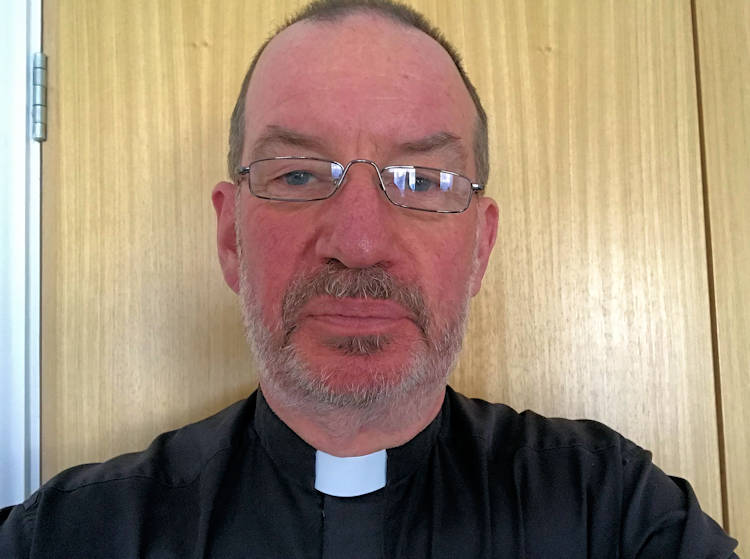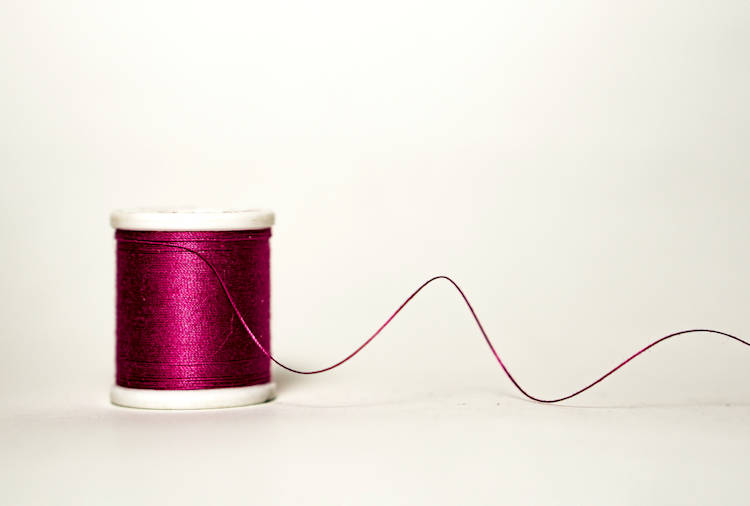
Lady Dannatt to attend requiem Mass for Prince Philip
April 12, 2021
Lady Dannatt attends requiem Mass for Prince Philip
April 15, 2021Fr Paul Maddison shares some thoughts on developing a habit of prayer from his new website: www.divinethread.org
Whilst we can pray at all times and in all places; if we wish to cultivate the habit of spending time in deep prayer, one of the first things we have to admit is that we are weak! Distractions of any kind, sometimes inspired by the devil, can attempt to pull us away in so many different directions. To help overcome the disruptions there are a few things we can do.
Firstly, the physical space in which we pray is important, it is one of the reasons we have churches and chapels. However, when we want to settle to serious prayer in our own homes, it is important to identify a place where we pray and to return to this place much like a bird to the nest. It might be that we have a guest bedroom we can use, maybe once everyone else is out of the house we can use the sitting room, what is important is to find a place that is not filled with too many distractions. A friend with a young family found the only place she could use was the bathroom!
Once the place has been identified some people like to have an icon, statue or picture helping them to focus; there is no right or wrong way to pray, we are all unique and so is our prayer. The golden rule is: if it helps you to pray, use it! If you want to use a candle, make sure it is safe and never leave it unattended.
Posture is vital if we are to pray without the interruption of being uncomfortable. Sitting is normally the best position to adopt for prayer, kneeling is usually reserved for adoration. Choose a chair which is not too comfortable otherwise you might risk falling asleep. A dining room or kitchen chair with a straight back support is usually best. Sit into the chair so you have your back supported and your feet placed flat on the floor or slightly raised on a large book or footstool if you have one.
The secret is to feel comfortable enough not to be distracted by your body but not too comfortable that you fall asleep! Many people are not sure what to do with their hands; the best advice is to ether place them palms down above your knees, or to lay them in your lap.
The third important factor is to become aware of our breathing. Once we settle to pray, if we become aware of our regular and gentle breathing it can become for us a kind of rhythm which allows us to focus and to draw ourselves back once distractions come. As you begin to pray and become aware of your breathing it will naturally slow and deepen, allow this to happen – try not to force it – and become aware of the breath entering and leaving your body.
Remember that it was God who breathed over the chaos to create the world as told to us in the Book of Genesis, and it was Jesus who breathed over the apostles at Pentecost to give them the gift of the Holy Spirit as told us in the gospel of St John. There are also significant health benefits to be gained from a period of slow deep breathing including lowering of the pulse rate and blood pressure, reduction of stress and increased lung capacity.
Fourthly, is it valuable to commit to regularity in prayer, even down to trying to pray at the same time each day. The devil will help us to find all sorts of reasons and excuses not to pray, but to literally “get into the habit” of praying is a great opportunity to kick that distraction into touch. Most people find that first thing in the morning works for them, maybe before anyone else is up and about, and before the bustle of the day begins. Some people find that last thing at night works for them. Choose the most appropriate time for you and try to stick to it, if the time you initial choose proves to be difficult, then change to a different time; prayer should not become a burden or task.
The fifth area to look at is the length of time we should pray. Again, there are no hard and fast rules here, it depends on what works for you. The important thing is to avoid the distraction of not committing to a regular, habit-forming length of time. Sometimes we can use the excuse of being busy to shorten our prayer time; Charles Wesley – the great Methodist preacher – knowing his day would be particularly busy, would get up an hour earlier and pray for a longer period than usual to support his busy day!
Praying is not an exam, race, or endurance test; the regularity and depth of our prayer should be our focus. Much like an athlete in training, the benefits come from the regularity and intensity not the length of time spent on the exercise. Be gentle on yourself at first but stick to your commitment. Delia Smith, the cook, and spiritual writer, started out by praying for 10 minutes each day and used an egg timer to alert her when the time was up, so she did not have to keep peeping at her watch.
Finally, focus is so important when we are trying to pray. Distractions will come, but if there is something to draw us gently back to what we are here for it can be extremely helpful. Use a word or phrase repeated with each breath, a picture, an object, even something in your hand; and gently bring yourself back from things drawing you away from your primary purpose which is to be “…still and know that I am God.”
There is a great little App called Centering Prayer (the American spelling is correct!) which I find invaluable in helping me. It can be set up to give a pre-determined time of silence as well as leading into and out of that silence with music.
Regularity is the most important thing when trying to pray. Make a commitment and try to stick to it, yes there will be days when all does not go quite to plan, but there will be other days when you find yourself in a wonderfully enriching time of communing with the Divine. Many spiritual writers talk about developing a habit of prayer, making the effort to develop such a habit will be well worth it.

More resources and information is available on Fr Paul’s website: www.divinethread.org




